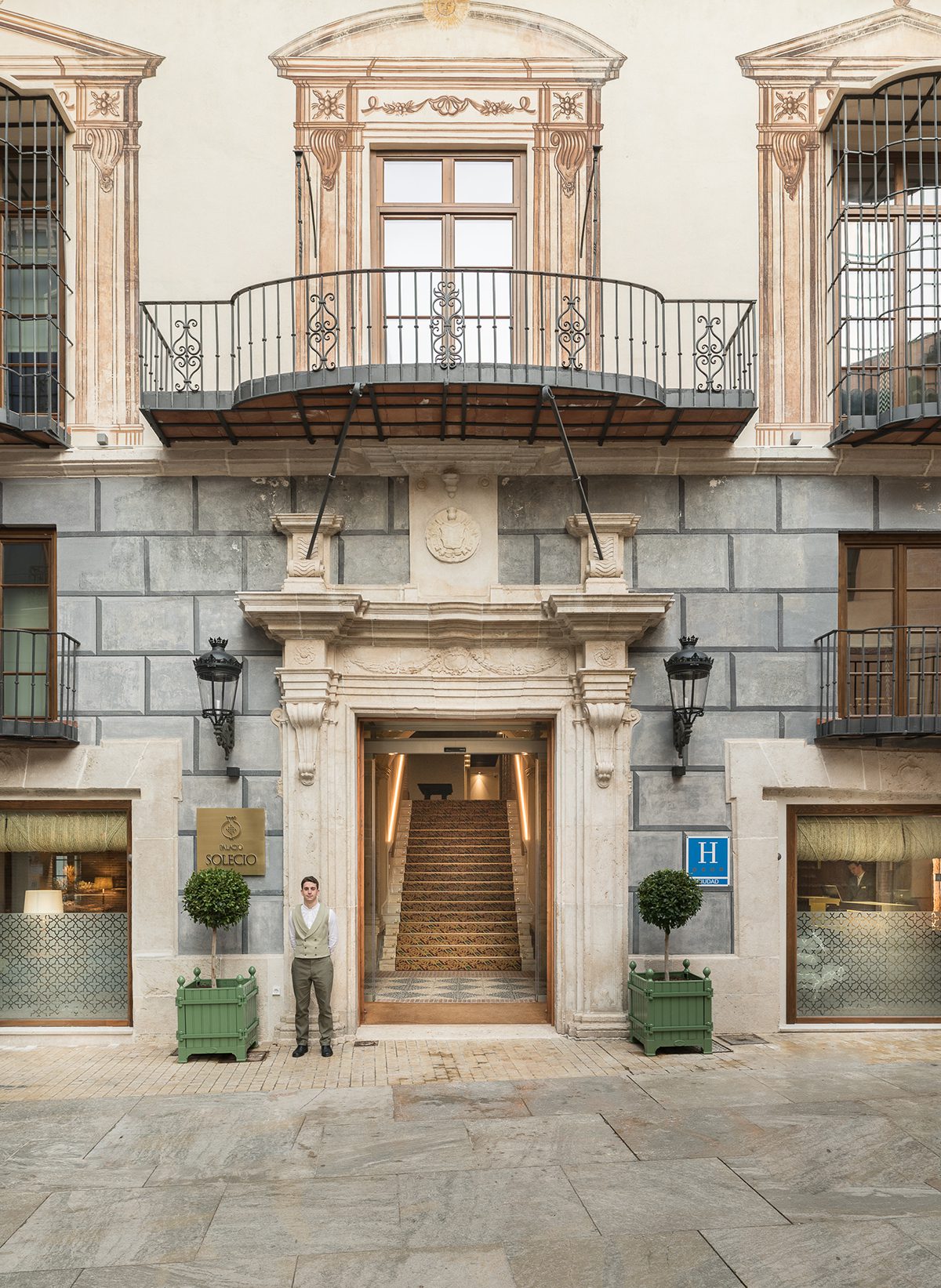
Málaga might not be the first place that springs to mind as a luxury destination, but the recent opening of sophisticated boutique hotel Palacio Solecio alongside the first international outpost of the Pompidou centre and a super-yacht marina signals a new future for the historic Andalusian city. LUX checks in for a weekend of food, art and culture
We arrive on a warm spring evening. Our taxi drops us on the edge of the pedestrianised cobbled streets of Calle Granada, Málaga’s old Jewish quarters, where our hotel, Palacio Solecio, is located in a former 18th century Andalusian palace opposite a peach-coloured 14th century church. This part of the city has a serene, almost earthy feel to it, perhaps partly due to the plethora of historic buildings and narrow winding alleys but also because it feels lived in. There are none of the Irish bars and nightclubs that are so popular with hen and stag dos – although if that is your thing, the central strip is a matter of minutes away too. That said, Malaga has done much in recent years to shake its reputation as a party destination. With a new sleek port, a first-class culinary scene and a growing clutch of artistic attractions, it’s slowly beginning to attract more culturally-orientated visitors.
Follow LUX on Instagram: luxthemagazine
After we’ve checked in and been shown to our bedroom – an elegant junior suite with an enormous four poster bed and a french balcony overhanging the street – we head back out to find somewhere to eat and stumble upon El Pimpi, a rustic tapas bar where, in true Mediterranean fashion, local families are crowded around tiny tables for a late night snack and glass of sherry. The menu is scrawled in Spanish on a large blackboard behind the bar and we pick a few plates, largely based on words we recognise. A few minutes later, a thick yellow wedge of tortilla arrives on our table along with boquerones en vinagre (white anchovies in oil and vinegar), patatas bravas drenched in a rich tomato sauce and crispy calamari. Málaga is renowned for having some of the best tapas in Spain and this is strong start.
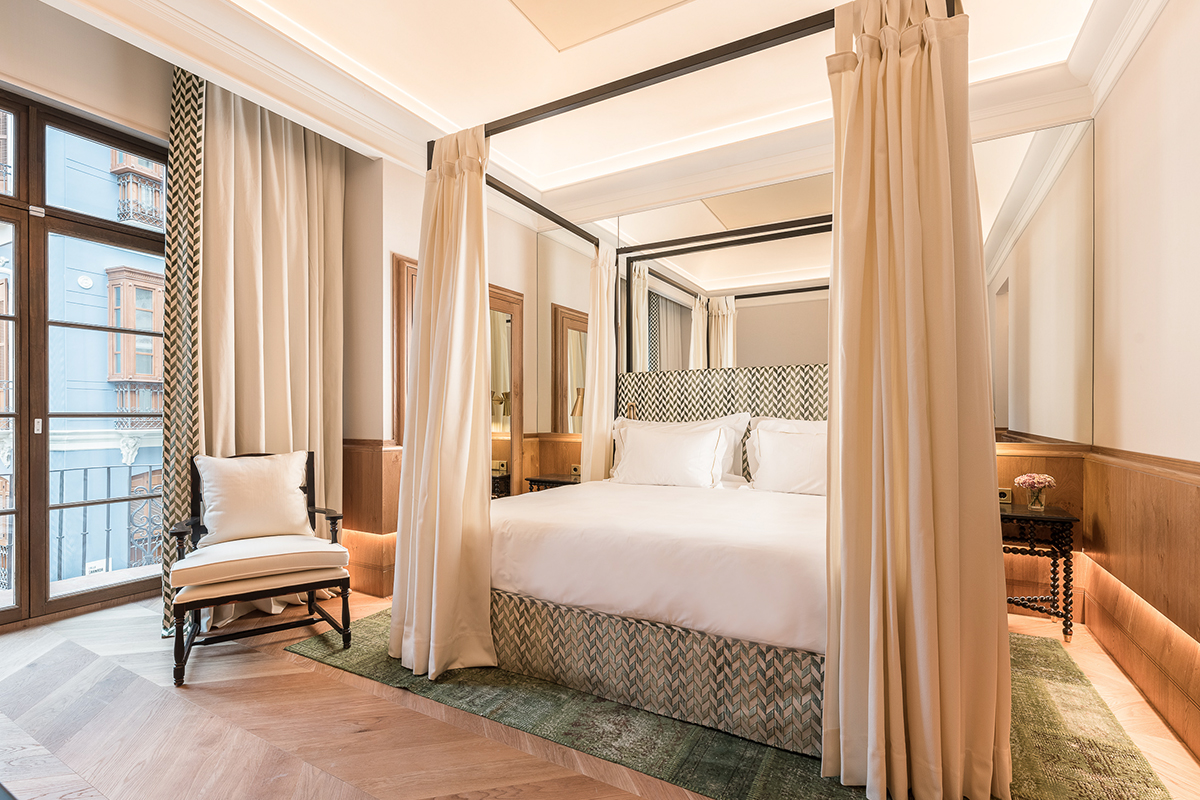
A junior suite with french balconies
The next day is bright and fresh – warm enough to go without a jumper in the sun. We have been given an extensive list of recommendations by the hotel’s staff (all within walking distance), but decide to spend the morning wandering and set off without any particular direction in mind.
What strikes us the most is the sheer beauty of the city: its sun-washed palette, patterned ceramic tiles, hidden churches and vibrant plazas, the way in which the ancient and modern coexist so seamlessly. One minute we’re walking past high street brands and the next, we’re standing in front of the ruins of a Roman theatre. The cathedral is especially astounding both for its monumental scale and the lush gardens that surround it. On our visit, a woman is sitting against one of the walls, singing a slow, haunting tune.
Read more: A tasting of Dalla Valle wines with the owners
For lunch, we take the hotel’s advice and find a table on the edge of the famed Atarazanas food market, listed as one of the best markets in the world by The Guardian in 2019. The food is exceptional: tortillitas de camarones (crispy prawn fritters) followed by fresh tuna kebabs with thick slices of beef tomato and pepper, and two enormous grilled king prawns. We then head down to the waterfront to visit the Pompidou Centre Málaga, the first international branch of the Pompidou Centre outside of Paris to view its permanent collection which includes a promising range of works by the likes of Picasso (Málaga’s most famous son), Bacon, Giacometti and Frida Kahlo. Although some of the pieces are compelling, we find the experience as a whole disappointing: the space is disorientating and the display lacks any curatorial concept. The Carmen Thyssen Museum, however, is wonderful. The permanent displays on the lower levels offer an intriguing insight into Spanish art history with a strong collection of Old Masters, while the upper galleries stage visiting exhibitions – during our visit, there’s an excellent presentation of works by American photographer Paul Strand.
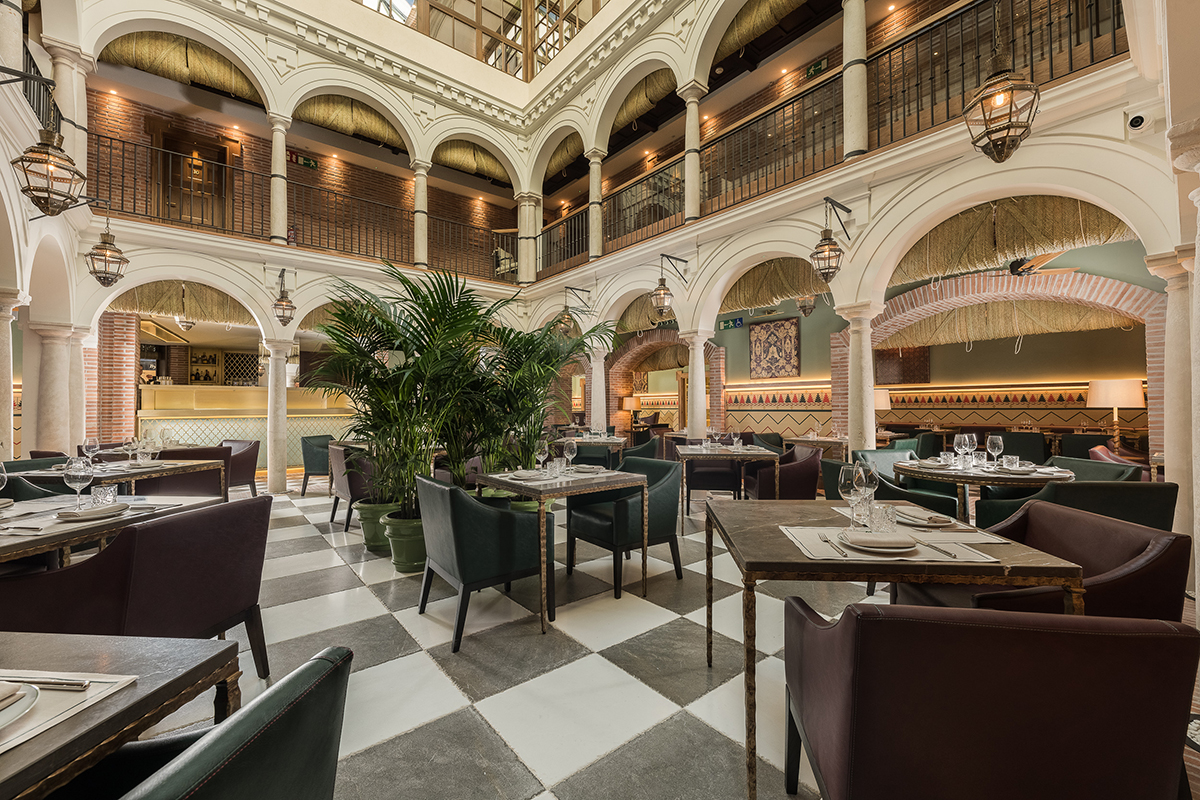
Balausta, the hotel’s restaurant
That evening, we dine at Balausta, the hotel’s restaurant, located in a light-filled atrium edged with pillared archways. The menu focuses on Andalusian dishes made with fresh, local produce. Our waiter recommends we choose a few plates to share and we opt for the tomato tasting platter and kale salad followed by the red tuna tartare and scallops cooked in tomato stew (a local recipe packed with flavour). The dishes are modestly sized, but perfect after our indulgent lunch while the unpretentious serving style feels very much in keeping with hotel’s relaxed, homely atmosphere.
After dinner, we make our way to Hammam Al Andalus (a five minute walk from the hotel) where we bathe in candlelit heated pools until midnight when the baths close and we drift back to our room for one of the best night’s sleeps we’ve ever had.
Rates from €179 per night on a room only basis. For further information or to book, visit www.palaciosolecio.com/en/

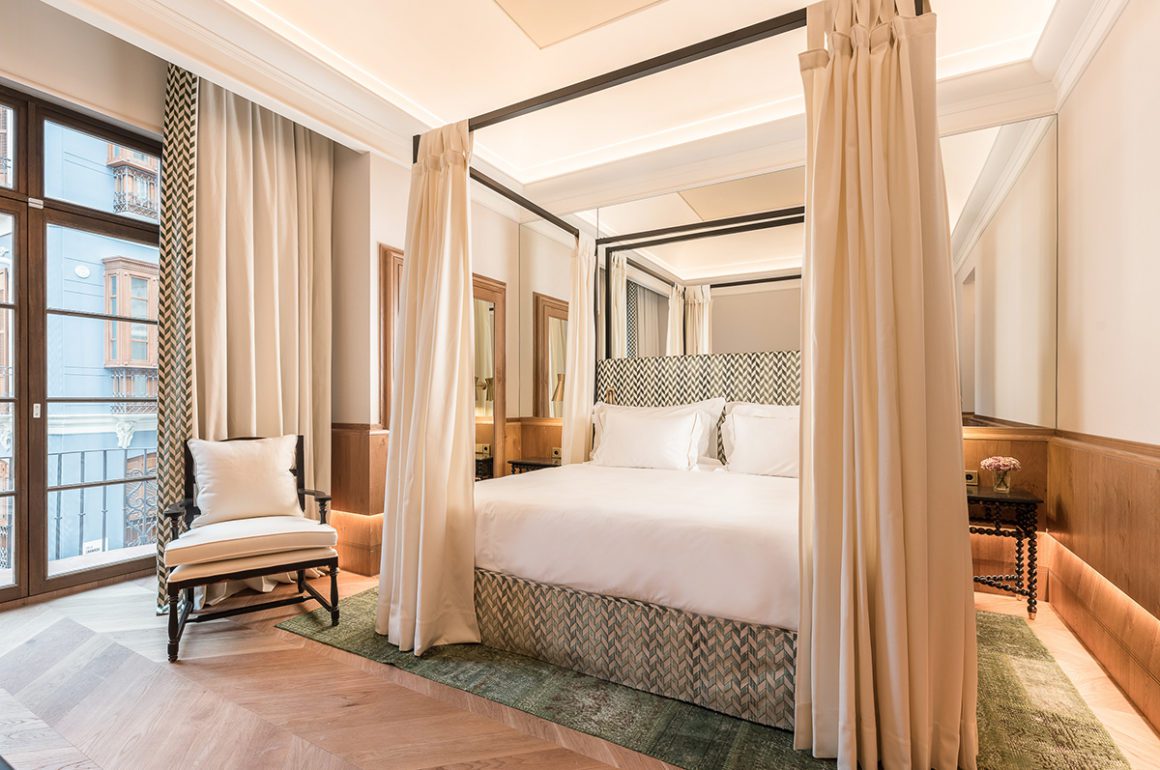
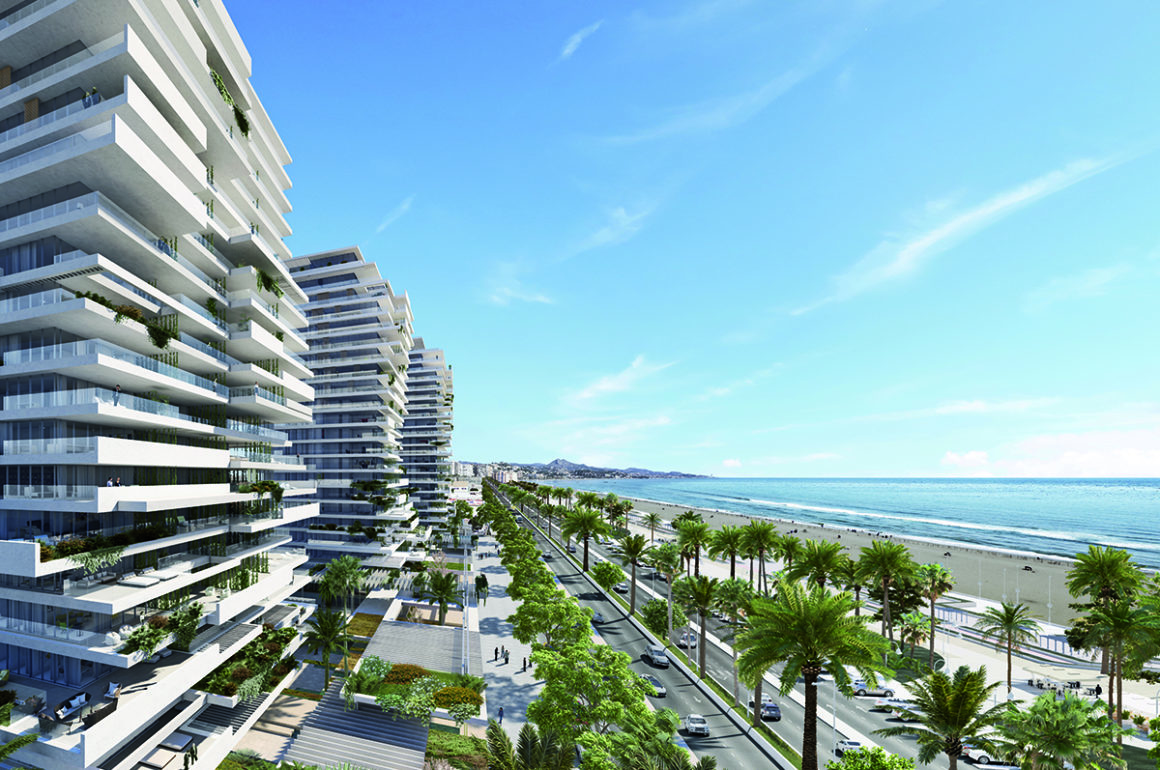
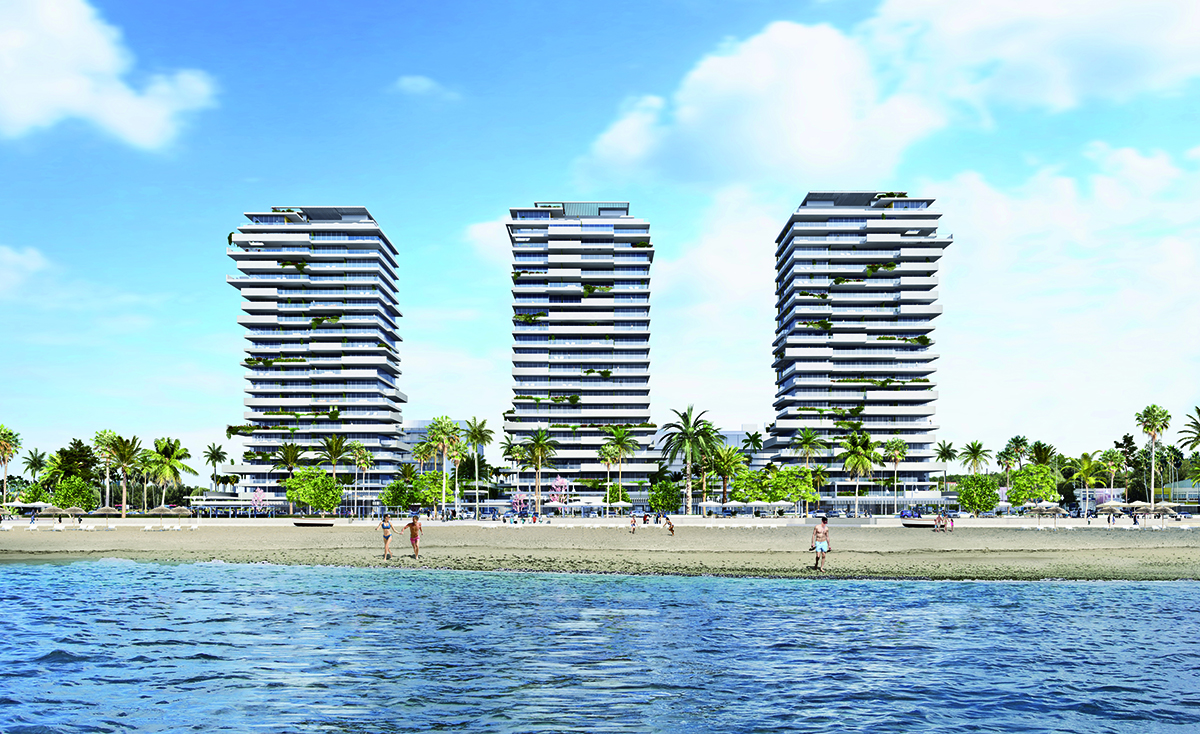

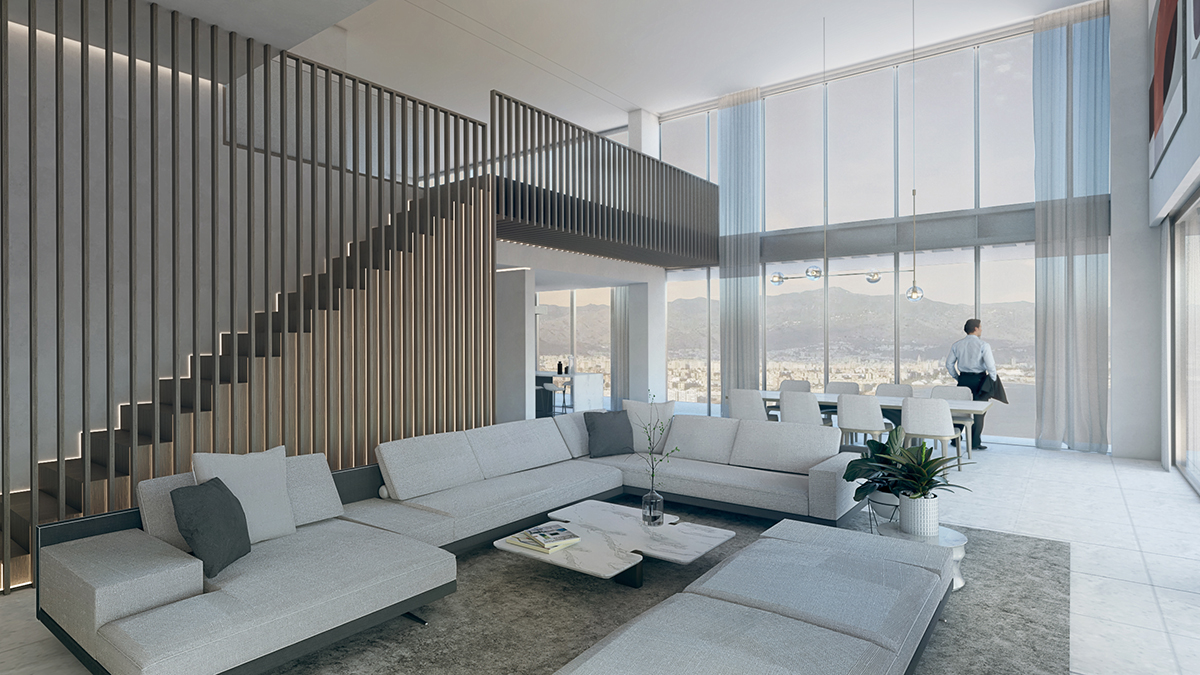
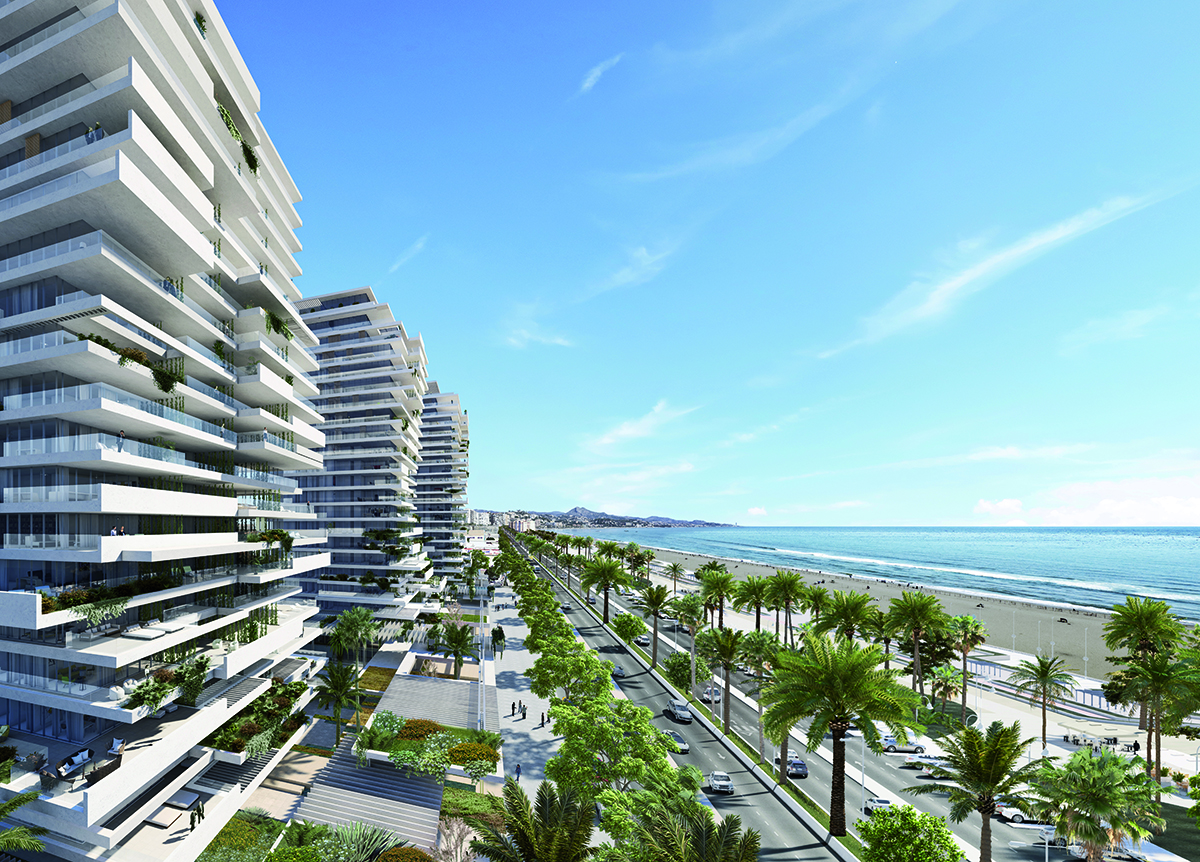





Recent Comments